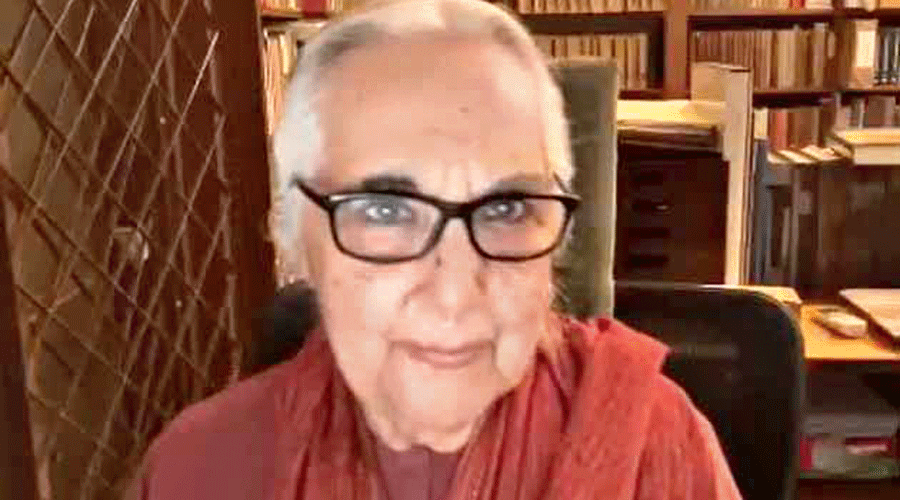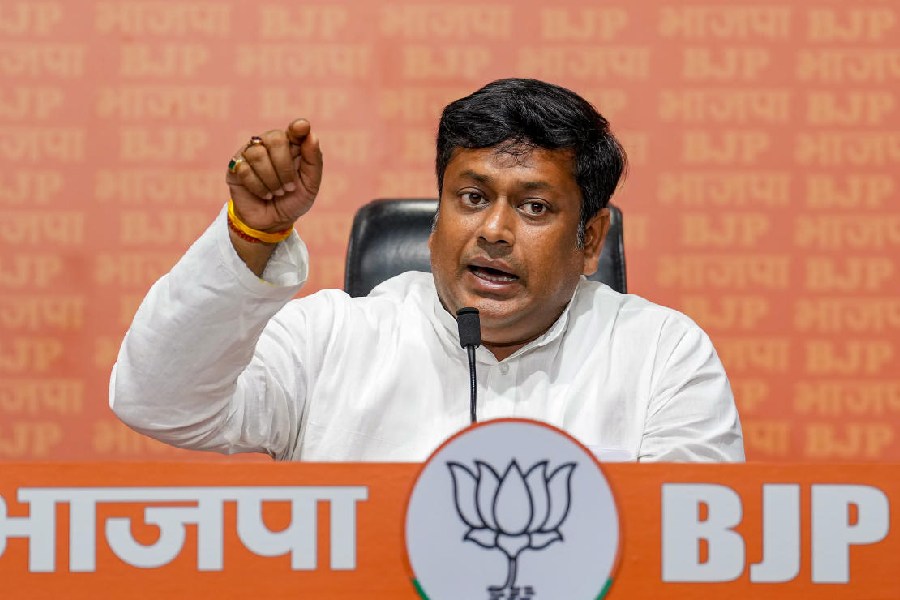How have we changed? Here’s how:
⚫ Expressions like “azadi” and “inquilab zindabad” were fundamental to the definition of the nation. Now they are regarded as “anti-national”.
⚫ Mahatma Gandhi defined “swaraj” in 1924 as “truthful relations between Hindus and Mussalmans, bread for the masses and removal of untouchability”. All of those things now appear treasonous.
⚫ Laws that were used to suppress dissent during the Emergency in India are being used extensively for the same purpose now without an emergency being proclaimed.
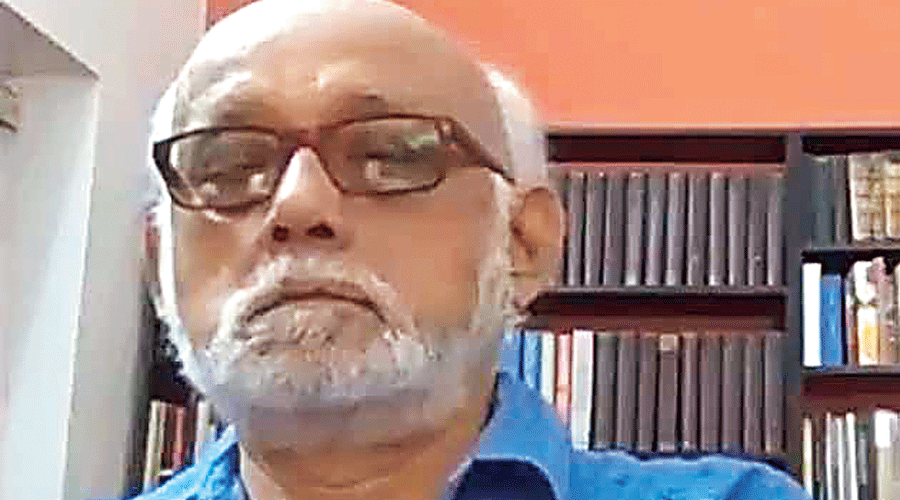
Partha Chatterjee. The Telegraph
Several academics on Saturday evening made poignant reflections on the evolution of political correctness in language as well as the application of laws to curb dissent, speaking at a webinar titled “History will bear witness” in solidarity with “prisoners of conscience”.
Romila Thapar, professor of ancient history, emerita, at Jawaharlal Nehru University (JNU), highlighted how the understanding of words had changed, which may have led to students of her varsity like Umar Khalid and Sharjeel Imam being arrested for their speeches.
“I remember that as a child in the 1930s, when I was about five or six, among the many slogans we grew up with were slogans of the nationalists and the words ‘azadi’ and ‘inquilab zindabad’. They were foundational to the ideology of the national movement. They were also fundamental to the definition of the nation. Yet there are enough people today who, shall we politely say, strangely enough regard these words when they are used today as anti-national.”
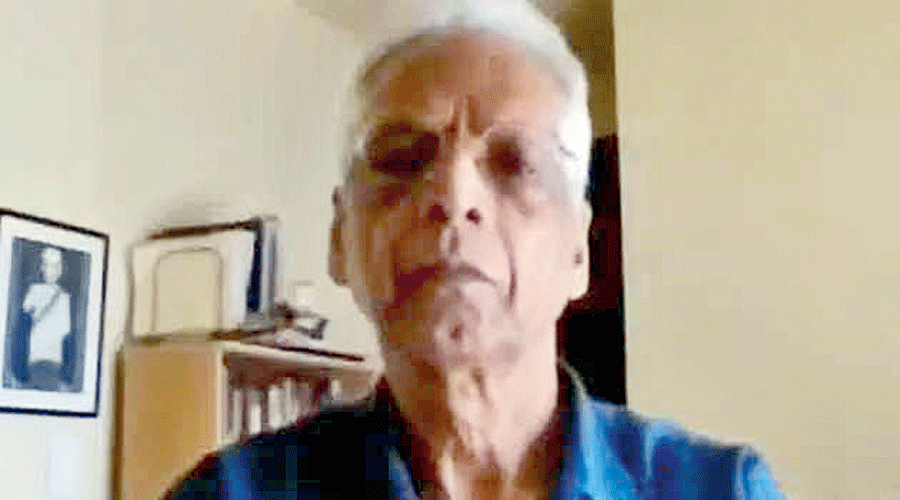
Gyanendra Pandey. The Telegraph
Khalid is in jail, an undertrial on terrorism charges for a speech in Maharashtra in 2020 that called for protests against the new citizenship regime, and which police have linked to communal riots in Delhi that year. In a recent bail hearing, Delhi High Court sought clarification from Khalid’s lawyer on his client’s use of words such as “inquilabi” and “krantikari”, which mean “revolutionary” in Urdu and Hindi.
Thapar added: “Some of our students have held or are still holding high office, the highest offices in the land. Others have been arrested for asking questions and suggesting solutions. But what they forgot, the ones that were arrested, was that when society changes and historical context changes… the meaning of words may also change, and that is what is happening at the moment.”
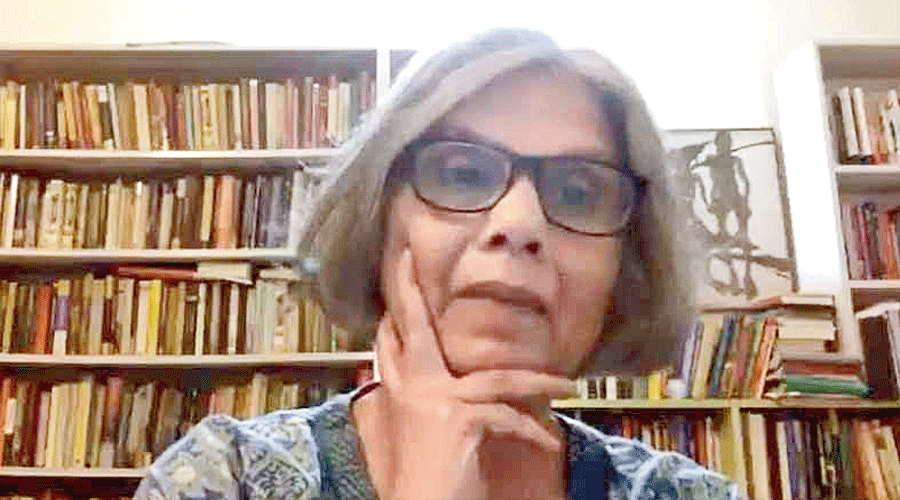
Tanika Sarkar. The Telegraph
She said India had held on to colonial laws to curb dissent, perhaps because changes to the system of governance were not demanded strongly enough soon after Independence.
The 90-year-old academic explained: “Our generation of intellectuals did not bring up this debate that — ‘all right, we have become an independent nation, we are now not subjects but citizens. How do we change the structure of our society and our system in order to ensure that we become citizens and we have the rights of citizens’, which would have involved very fundamental changes in the structure.”
Subaltern historian Gyanendra Pandey of Emory University, the US, cited Mahatma Gandhi’s definition of “swaraj at the present moment” in 1924 as: “…truthful relations between Hindus and Mussalmans, bread for the masses and removal of untouchability”.
“All of those things now appear treasonous if they are put in as your primary programme… in a regime that appears so narrow-minded, so fixated about staying in power and putting away in jail and killing anyone who challenges their position,” Pandey said.
Partha Chatterjee, anthropologist and political scientist at Columbia University, said the laws used to suppress dissent during the Emergency were being used extensively for the same purpose now without an emergency having been proclaimed.
“Hindu majoritarianism has penetrated deep into the popular domain, especially in western and northern India…. It legitimises vigilante actions spurred by social media, which are not necessarily centrally controlled…. This particular aspect is closest to what we recognise as fascist actions,” Chatterjee said.
“The subservience of the civil services, police and various enforcement agencies… this was not so 30 or 40 years ago…. All the agencies of government, bureaucracy are not just accomplices, they very often initiate many of these actions.
“The objective is simply to harass…. There is enough punishment simply in the period of detention (under trial) which can go on for years.”
Modern historian Tanika Sarkar, who taught Khalid in JNU before she retired, highlighted his zeal in completing his PhD in 2019 after being released on bail in a previous sedition case in 2016.
She said: “A tireless campaigner for democratic rights and justice, he has never once deviated from the path of peace. All he has hated is the politics of hate.”

